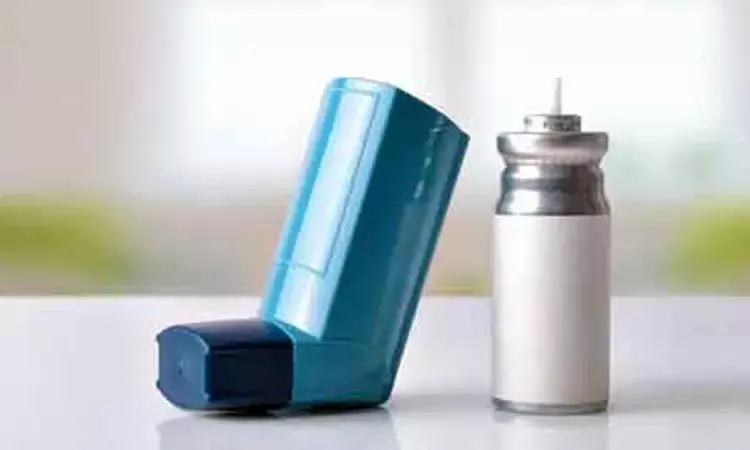- Home
- Medical news & Guidelines
- Anesthesiology
- Cardiology and CTVS
- Critical Care
- Dentistry
- Dermatology
- Diabetes and Endocrinology
- ENT
- Gastroenterology
- Medicine
- Nephrology
- Neurology
- Obstretics-Gynaecology
- Oncology
- Ophthalmology
- Orthopaedics
- Pediatrics-Neonatology
- Psychiatry
- Pulmonology
- Radiology
- Surgery
- Urology
- Laboratory Medicine
- Diet
- Nursing
- Paramedical
- Physiotherapy
- Health news
- Fact Check
- Bone Health Fact Check
- Brain Health Fact Check
- Cancer Related Fact Check
- Child Care Fact Check
- Dental and oral health fact check
- Diabetes and metabolic health fact check
- Diet and Nutrition Fact Check
- Eye and ENT Care Fact Check
- Fitness fact check
- Gut health fact check
- Heart health fact check
- Kidney health fact check
- Medical education fact check
- Men's health fact check
- Respiratory fact check
- Skin and hair care fact check
- Vaccine and Immunization fact check
- Women's health fact check
- AYUSH
- State News
- Andaman and Nicobar Islands
- Andhra Pradesh
- Arunachal Pradesh
- Assam
- Bihar
- Chandigarh
- Chattisgarh
- Dadra and Nagar Haveli
- Daman and Diu
- Delhi
- Goa
- Gujarat
- Haryana
- Himachal Pradesh
- Jammu & Kashmir
- Jharkhand
- Karnataka
- Kerala
- Ladakh
- Lakshadweep
- Madhya Pradesh
- Maharashtra
- Manipur
- Meghalaya
- Mizoram
- Nagaland
- Odisha
- Puducherry
- Punjab
- Rajasthan
- Sikkim
- Tamil Nadu
- Telangana
- Tripura
- Uttar Pradesh
- Uttrakhand
- West Bengal
- Medical Education
- Industry
Inhalers use okay amid COVID-19 concerns, finds study

The benefits of using inhalers and nebulisers containing steroids outweigh the risks despite warnings to the contrary during the COVID-19 pandemic, a study by University of Huddersfield researchers has found.The study has been published in Respiratory Medicine.
A warning issued by WHO in March advised that steroids used in inhalers and nebulisers could have a negative effect on a user's immunity system, leaving them more susceptible to COVID-19. The concern was that regular steroid use could leave users vulnerable to contracting the virus, or developing a more severe version than non-users.
WHO's cautionary note caused worry for people with asthma or chronic obstructive pulmonary disease (COPD), leaving them unsure about whether they could keep using inhalers and nebulisers or not. The British Thoracic Society had reported that demand for inhalers had jumped by 400%, leading to shortages in the UK, following WHO's announcement.
However, Dr Hamid Merchant and Dr Syed Shahzad Hasan from the University of Huddersfield commissioned research into the use of steroids and risk of infections, especially viral infections of the upper respiratory tract. That included previous outbreaks of SARS, as well as the COVID-19 pandemic.
"It confused a lot of people," says Dr Hasan. "After the WHO advice, people thought that continuous use of steroids would leave them at a greater risk of contracting the virus or developing more than a mild version of CoViD-19."
Inhaled corticosteroids (ICS) and oral corticosteroids (OCS) are prescribed to help asthma sufferers and those with COPD, with inhalers used to prevent attacks.
The study, having assessed evidence and findings from a range of bodies including the British Thoracic Society and the National Institute for Health and Care Excellence (NICE). The other authors in the study included Toby Capstick (a consultant pharmacist on respiratory medicine at Leeds Teaching Hospitals NHS Trust), Syed Tabish Zaidi (Associate Professor in Pharmacy at the University of Leeds) and Chia Siang Kow (a clinical pharmacist from Malaysia).
"We found there is strong evidence that the benefits of continuing with steroids outweighs the risk," declares Dr Merchant.
"There is a risk that the immune system goes down, and there is a chance of acquiring infections but the benefits of continuing with steroids throughout were higher than the risks. We concluded by saying that the patients should continue their regular medicines including steroids."
Hina Zahid Joined Medical Dialogue in 2017 with a passion to work as a Reporter. She coordinates with various national and international journals and association and covers all the stories related to Medical guidelines, Medical Journals, rare medical surgeries as well as all the updates in the medical field. Email: editorial@medicaldialogues.in. Contact no. 011-43720751
Dr Kamal Kant Kohli-MBBS, DTCD- a chest specialist with more than 30 years of practice and a flair for writing clinical articles, Dr Kamal Kant Kohli joined Medical Dialogues as a Chief Editor of Medical News. Besides writing articles, as an editor, he proofreads and verifies all the medical content published on Medical Dialogues including those coming from journals, studies,medical conferences,guidelines etc. Email: drkohli@medicaldialogues.in. Contact no. 011-43720751


